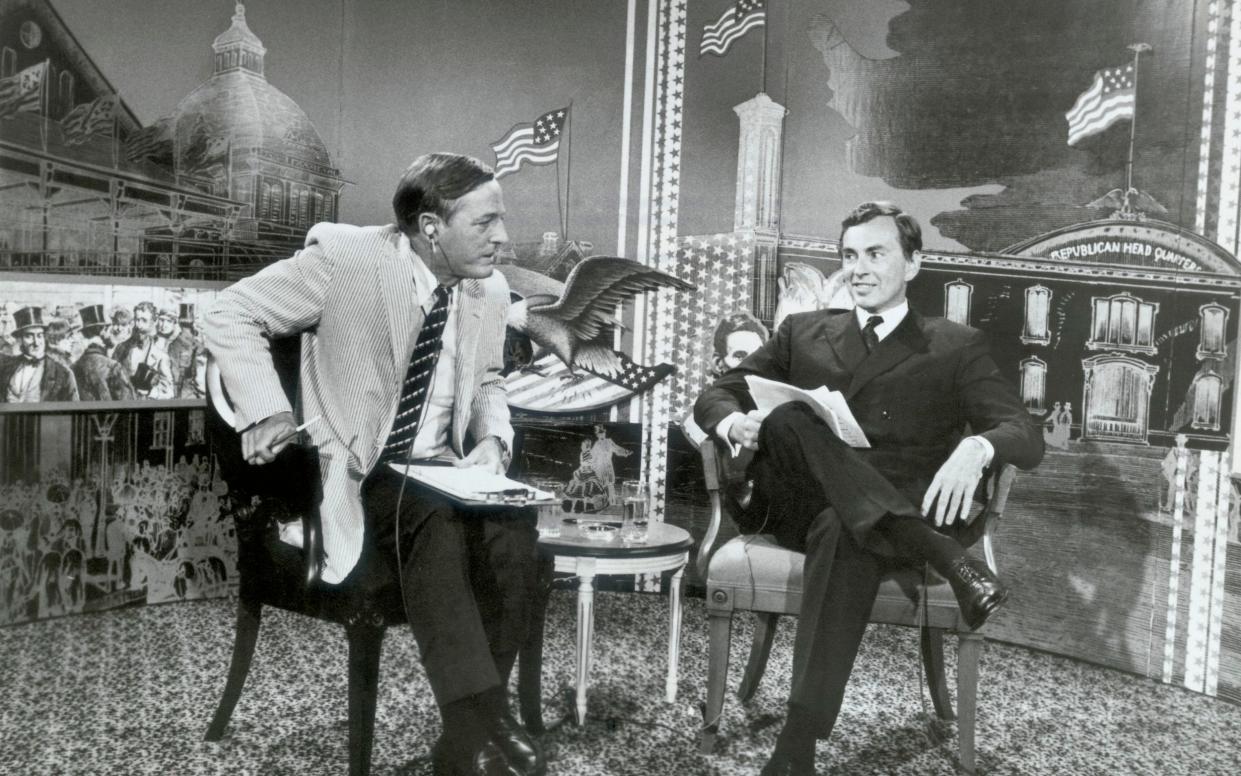Conservatives don’t need to be populist to be popular

- Oops!Something went wrong.Please try again later.
- Oops!Something went wrong.Please try again later.
PBS has posted on YouTube – for free – a documentary on the life of William F Buckley, the thinker who defined and popularised Cold War conservatism. Now that’s what I call public service broadcasting! Conservatives say the feature is too critical; liberals, too polite. I think it’s pretty darn good; a well-balanced biopic that captures the man and his times. One of its triumphs is to explain how conservatism, the philosophy of snobs, evolved into the politics of the working-class.
The Incomparable Mr Buckley tells a familiar story. In the 1950s, liberalism was dominant and conservatism barely a thing – till a brash Yale graduate set up the magazine National Review, which aimed to collate and promote right-wing thought. Its editor, Mr Buckley, followed the Remnant theory of politics – that the West, threatened by communism abroad and subverted by socialists at home, was sliding into a dark age. It fell to an enlightened few to preserve “Christian Individualism”.
Buckley proved not only enlightened but enlightening: handsome, witty, the cameras simply loved him. He expected that the chief constituency for his philosophy would be college graduates. But when his talent at TV debate coincided with a popular backlash against race riots and campus disorder, a paradox was born: Buckley’s biggest fans were cops and dockers.
The National Review project, we learn, helped advance Barry Goldwater, Richard Nixon (faintly, for Buckley was never that keen) and finally Ronnie Reagan. That’s why liberals so detested its editor. Buckley took a conservative movement that was divided and ridiculed – united, refined and marginalised the cranks, transforming reaction into something borderline respectable. It’s a favour that critics accuse the documentary of repaying to Buckley. In a scathing review, the historian Rick Perlstein, who was also interviewed for the film, accuses The Incomparable… of “whitewashing” WFB, rehearsing the National Review myth that Buckley morally improved conservatism, whereas Trump has taken it off in a darker direction.
Nonsense, says Perlstein: National Review was packed with racists and Buckley did his best not to alienate the far-Right.
I noticed that when the documentary focuses on his notorious 1965 civil rights debate with James Baldwin, it includes some of his most peculiar lines (his joke that the challenge in the Deep South wasn’t too few blacks voting but too many ignorant whites doing so) yet omits the worst. At the end of that particular speech, Buckley warned that black radicals might seek advancement at the expense of white people, adding that he believed “with absolute authority” that Americans would fight said radicals “on the beaches”. The violence was implicit. The line from Buckley to Trump is clear.
Admirers of WFB, on the other hand, accuse the show of damning him with faint praise while missing the secret of his success. Buckley won many debates because he was frequently correct. Correct about capitalism, social decay, the hidden radicalism of college liberals and, most importantly, the threat from the Soviet Union. By failing to explain how dangerous and murderous communism was, the doc casts anti-communism as a hobby at the margins: in reality, it threatened everything the average American holds dear. If Buckley was just setting the scene for Trump – sneaking the rubes into the party by the backdoor – how do we explain his condemnation of isolationists in the 1990s? Or his magazine’s purist opposition to Trumpism today? National Review is currently playing the role of a remnant within the Republican Party, waiting for it to return to Reaganite orthodoxy.
The unity that WFB constructed – the clever word is “fusionism” – is dead. But he still has so much to teach. First, the importance of ideas. Modern man has a habit of assuming we think the way we always have. No, someone had the idea first and a tradition flowered from it – and so one begins to reshape the culture by first reshaping its ideas. Buckley’s peers achieved this within their own lifetime by building a case for flatter taxes, deregulation and privatisation, policies that are now regarded as standard economics yet were once hard to imagine. If conservatives want to win a debate, they must actually take part in it.
Second, thought must be attached to organisation. The Right has a thousand think tanks but a very small army. For its foot soldiers, it needs not just door-knockers or petition-pushers but men and women who will dedicate themselves to the painstaking task of colonising institutions – just as the far-Left has done – to advance the cause. Conservatives have succeeded in taking over the Republican Party, with help from Buckley, but very little else: the walls of universities, business and culture need to be breached, too.
Finally, Buckley demonstrated the value of class. Today’s conservative movement is self-consciously, often fraudulently plebeian: even Ivy League graduates must wear baseball caps and pretend they like country music. Who can forget Mitt Romney telling an audience the unlikely story that he’d done his Christmas shopping at Walmart?
Buckley didn’t bother with that nonsense. He was what he was and, if anything, amplified it, with classical allusion and a Victorian syntax. Conservatism supposes that the true friend of the working man is the aristocrat, for they both despise the meddling middle-class, with its countless designs to improve the republic. As WFB famously put it: “I would rather be governed by the first 2,000 people in the telephone directory than by the Harvard University faculty.” I think this is one reason I am on the Right: it is simply funnier than the Left.

